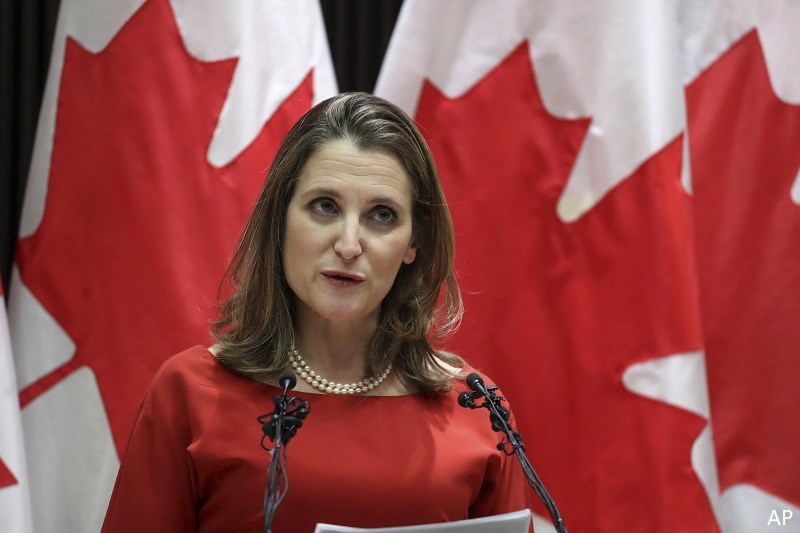Minister of Finance must include climate-related conditions to the proposed acquisition of HSBC by RBC

We are writing in regards to the Department of Finance’s consultation regarding the proposed acquisition of HSBC Bank of Canada (HSBC) by RBC Royal Bank (RBC). The undersigned groups urge the Department to either reject the proposed acquisition, or accept it conditional on RBC i) implementing a Credible Climate Plan and ii) committing to meeting or exceeding HSBC’s international commitments to ending investments in fossil fuels.
RBC is both the largest bank in Canada and the largest financier of fossil fuels globally. HSBC, by contrast, set a global precedent by announcing a policy to stop financing new oil and gas projects and has stated that its investments in fossil fuels will decrease. The Canadian federal government’s climate goals can only be met if private finance flows in the right direction. If the Department were to accept the proposed acquisition without adding climate related conditions, the acquisition would result in: impeding progress on Canada’s fight against climate change, fewer green options for Canadian banking consumers, and unmanageable levels of climate-related risks destabilizing the Canadian financial system.
RBC’s ongoing financing of high emitting companies and projects contributes to worsening the effects of climate change. RBC has financed over C$340 B in fossil fuels since the Paris Climate Agreement was signed, and in 2022 was the world’s #1 funder of fossil fuels. RBC has set only “emissions intensity” targets for 2030, which would allow its total financed emissions to rise. The bank touts billions set aside for “sustainable finance,” but included in this category a C$1 B loan for an Enbridge oil sands pipeline. The scale of RBC’s investment into sustainable projects is negligible relative to its investments in climate-damaging fossil fuels, with a recent report showing RBC puts $99 of its energy finance into fossil fuels for every $1 in renewable energy. Despite claims to be Net Zero by 2050 and to support clients in the energy transition, RBC’s business practices show it has no intention of cutting its financing of fossil fuels.
RBC’s track record is relevant in comparison to that of HSBC Canada, which has taken further action to deliver on its sustainability commitments. HSBC Canada helped issue Canada’s first green bond, had many corporate clients who valued sustainability, and consistently ranks higher than RBC in Corporate Knights Corporate Citizenship rankings. In 2022, HSBC announced a global policy to stop financing new oil and gas projects, which, while imperfect, set a new global precedent and was welcomed by UK NGOs. Importantly for your consideration, RBC had that climate policy exempted from HSBC Canada as a condition for the takeover in question.
In 2022 HSBC’s global fossil fuel financing declined, and will continue to do so based on its commitments, while RBC’s increased making RBC the top global banker of fossil fuels.
Climate change has been identified by the Office of the Superintendent of Financial Institutions (OSFI) as one of the top risks to the stability of the financial system. According to OSFI, federally regulated financial institutions and private pension plans face physical risks (i.e., from climate change-related weather events) and transition risks (i.e., transition to a low greenhouse gas emitting or “low carbon” economy.) These risks are considered “transversal” in nature because they drive more traditional risks, including credit, market, insurance, operational and legal risks, which could exacerbate over time, impacting the safety and soundness of individual financial institutions, and the Canadian financial system more broadly.
Consolidation within the sector where a poor climate performer absorbs a counterpart with better performance undermines the stability of the financial system. The loss of a competitor moving to phase down its support for fossil fuels would further consolidate Canadian investment into an area at risk of becoming stranded, worsening the level of climate risk in our national economy. Over C$100 B of Canadian assets are at risk of becoming stranded, due to the financial sector moving too slowly on the climate transition. The Canadian Energy Regulator’s recent Net Zero report shows Canadian energy production would decrease by over 76% if the world succeeds in reaching net zero emissions by 2050. The Bank of Canada estimates that the Canadian economy could experience an 8-to-10 percent decline in GDP due to being unprepared for the climate transition.
The proposed transaction would have various other negative impacts on Canadians which should be considered, including implications on consumer mortgage rates, housing affordability, and the cost of living. RBC has also demonstrated significant cases of mistreatment of Indigenous Peoples and does not have meaningful policies to address the Free, Prior, and Informed Consent of Indigenous Peoples.
The Federal Government has advanced a whole of government approach to fighting climate change, however private finance remains a gaping hole. As long as financial institutions are allowed to expand support for the companies making climate change worse, Canada’s financial system and our ability to achieve the goals of the Paris Climate Agreement will be at risk.
Finance Minister Freeland has publicly stated that “the global economy is turning swiftly, decisively, and irreversibly green. It is essential for Canada to be at the forefront of this great transformation.” We therefore urge you to either reject the proposed acquisition, or to accept it conditional on our two recommended constraints of RBC i) implementing a Credible Climate Plan and ii) committing to meeting or exceeding HSBC’s international commitments to ending investments in fossil fuels.
Sincerely,
- Stand.earth
- Ecojustice
- For Our Kids
- Decolonial Solidarity
- Shift: Action for Pension Health and Planet Wealth
- Environmental Defence Canada
- Leadnow
- Re_Generation
- Quit RBC / Lâche RBC
- Climate Justice Thunder Bay
- Ontario Climate Emergency Campaign
- Climate Action Network – Réseau action climat Canada
- Regroupement pour la responsabilité sociale (RRSE)
The above letter was submitted to the Federal Department of Finance as part of their consultations for reviewing the takeover of HSBC by RBC.
